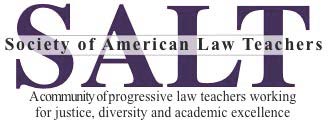Event Title
Concurrent Session 6B. Justice and the Teaching of Lawyering Skills
Location
Room 310
Start Date
6-10-2012 1:50 PM
End Date
6-10-2012 2:50 PM
Description
This panel explores the organic relationship between the teaching of lawyering skills and the advancement of justice. In the first presentation, Professors Brustin and Mullen outline methods of integrating the teaching of practice skills into doctrinal courses in a manner that meets the needs of disenfranchised and low-income litigants. They will suggest potential venues and community partnerships, and participants will develop a plan for integrating skills into their own courses. In the next presentation, Professor Kendall proposes the addition of “legal-forums” courses to the core curriculum to demonstrate how lawyers can utilize administrative and legislative forums to advance social justice. Finally, Professor Silver presents a simulation of a first-year class in which he exhorts the future stewards of the system of justice to examine the MEANING of justice, explores whether the concept is susceptible of definition or clear understanding, and asks if the failure to contemplate its meaning serves to perpetuate the status quo.
Concurrent Session 6B. Justice and the Teaching of Lawyering Skills
Room 310
This panel explores the organic relationship between the teaching of lawyering skills and the advancement of justice. In the first presentation, Professors Brustin and Mullen outline methods of integrating the teaching of practice skills into doctrinal courses in a manner that meets the needs of disenfranchised and low-income litigants. They will suggest potential venues and community partnerships, and participants will develop a plan for integrating skills into their own courses. In the next presentation, Professor Kendall proposes the addition of “legal-forums” courses to the core curriculum to demonstrate how lawyers can utilize administrative and legislative forums to advance social justice. Finally, Professor Silver presents a simulation of a first-year class in which he exhorts the future stewards of the system of justice to examine the MEANING of justice, explores whether the concept is susceptible of definition or clear understanding, and asks if the failure to contemplate its meaning serves to perpetuate the status quo.
